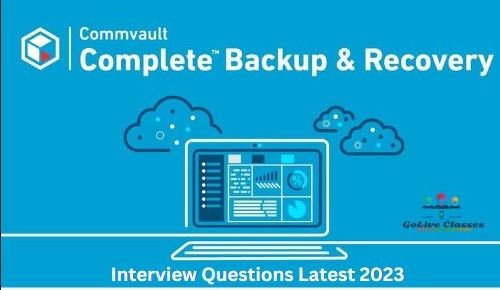
Introduction: Embracing the Power of Snowflake
In today’s data-driven world, organizations face the challenge of managing and analyzing vast amounts of data efficiently. Snowflake, a cloud-based data platform, has emerged as a leading solution, offering scalability, flexibility, and enhanced performance. To harness the full potential of Snowflake, data professionals are turning to specialized Snowflake trainings. These trainings provide comprehensive knowledge and skills required to navigate and leverage the features of Snowflake effectively.
Understanding Snowflake Trainings
Snowflake trainings are educational programs designed to equip individuals with the necessary expertise to work with Snowflake effectively. These trainings cover a wide range of topics, from the basics of Snowflake architecture to advanced techniques for optimizing performance and integrating with other data systems. By enrolling in Snowflake trainings, data professionals can gain the confidence and competence to harness the power of Snowflake in their data workflows.
Benefits of Snowflake Trainings
Stay Ahead of the Curve: Snowflake trainings empower data professionals to stay updated with the latest advancements and best practices in working with Snowflake.
Enhanced Efficiency: By mastering Snowflake, professionals can streamline data processes, leading to improved productivity and efficiency.
Unlock Powerful Insights: Snowflake trainings enable professionals to uncover valuable insights from data, enabling data-driven decision-making.
Career Advancement: With Snowflake skills in high demand, individuals with specialized training can open doors to new career opportunities and higher positions.
Collaboration and Networking: Snowflake trainings provide a platform for professionals to connect, collaborate, and share insights with peers and experts in the field.
Getting Started with Snowflake Trainings
To embark on your Snowflake training journey, follow these steps:
Define Your Goals: Determine the specific areas of Snowflake you want to master and set clear learning objectives.
Choose the Right Training Program: Research and select a reputable Snowflake training provider that offers comprehensive courses aligned with your goals.
Enroll in the Course: Register for the chosen Snowflake training course and complete the enrollment process.
Access Learning Resources: Once enrolled, access the learning materials, which may include video tutorials, hands-on exercises, and documentation.
Follow a Structured Approach: Study the course materials systematically, ensuring a thorough understanding of each topic before moving on to the next.
Practice and Apply: Reinforce your learning by practicing with Snowflake hands-on labs and applying the concepts to real-world scenarios.
Seek Support and Clarification: Don’t hesitate to reach out to instructors or fellow learners for guidance and clarification on challenging topics.
Snowflake Essentials: Exploring the Fundamentals
The Snowflake Essentials module covers the fundamental concepts and components of Snowflake, providing a solid foundation for further exploration. Key topics covered in this module include:
Snowflake Architecture: Understanding the unique multi-cluster shared data architecture of Snowflake.
Data Loading and Unloading: Exploring various methods to load data into Snowflake and export data from Snowflake.
Querying and Analyzing Data: Learning how to write SQL queries to retrieve and analyze data in Snowflake.
Data Warehousing Basics: Understanding the principles and benefits of data warehousing in the Snowflake context.
Advanced Snowflake Techniques: Unleashing the Full Potential
In the Advanced Snowflake Techniques module, participants dive deeper into the advanced features and functionalities of Snowflake. This module covers topics such as:
Performance Optimization: Techniques for optimizing query performance and minimizing resource consumption.
Snowflake Security Best Practices: Implementing robust security measures to protect sensitive data in Snowflake.
Advanced SQL and Analytics: Leveraging advanced SQL capabilities and analytical functions in Snowflake.
Data Sharing and Collaboration: Exploring ways to securely share data with external parties and collaborate on data projects.
Snowflake Security: Safeguarding Your Data
The Snowflake Security module focuses on ensuring data security and privacy within the Snowflake environment. Topics covered include:
User and Access Management: Configuring user roles, permissions, and access controls in Snowflake.
Data Encryption: Implementing encryption mechanisms to protect data at rest and in transit.
Auditing and Compliance: Monitoring and auditing data access and activities to ensure compliance with regulations.
Security Best Practices: Implementing recommended security practices to safeguard data in Snowflake.
Snowflake Integration: Seamless Data Collaboration
The Snowflake Integration module explores ways to integrate Snowflake with other data systems and tools. Key topics covered include:
ETL/ELT Processes: Building efficient Extract, Transform, Load (ETL) or Extract, Load, Transform (ELT) pipelines with Snowflake.
Data Pipelines and Orchestration: Leveraging tools like Apache Airflow or Snowflake Task Scheduler to automate data pipelines.
Third-Party Integrations: Exploring integrations with popular data tools and platforms such as Tableau, Power BI, and Apache Kafka.
Snowflake Optimization: Enhancing Performance
The Snowflake Optimization module delves into advanced techniques for optimizing Snowflake’s performance. Topics covered include:
Query Performance Tuning: Understanding query execution plans and utilizing query optimization techniques.
Warehouse and Resource Management: Configuring warehouses and managing resources to maximize performance.
Partitioning and Clustering: Implementing effective data partitioning and clustering strategies to optimize query performance.
Data Storage Optimization: Applying compression and other storage optimization techniques to minimize storage costs.
Snowflake for Data Warehousing: Revolutionizing Analytics
The Snowflake for Data Warehousing module focuses on leveraging Snowflake’s capabilities for data warehousing and analytics. Topics covered include:
Snowflake Data Modeling: Designing effective data models and schemas in Snowflake.
Managing Large Datasets: Techniques for handling and querying large volumes of data efficiently in Snowflake.
Dimensional Modeling: Applying dimensional modeling techniques to support analytical queries in Snowflake.
Advanced Analytics with Snowflake: Exploring Snowflake’s support for advanced analytics, including machine learning and graph analytics.
Snowflake in the Cloud: Scalability and Flexibility
The Snowflake in the Cloud module highlights the benefits of Snowflake’s cloud-native architecture. Key topics covered include:
Cloud Data Warehousing Advantages: Understanding the advantages of cloud-based data warehousing over traditional on-premises solutions.
Auto-Scaling and Elasticity: Harnessing Snowflake’s auto-scaling capabilities to handle varying workloads and maximize resource efficiency.
Multi-Cloud Deployments: Exploring the options for deploying Snowflake across multiple cloud platforms for increased flexibility.
Cost Optimization: Strategies for optimizing costs while leveraging Snowflake’s cloud scalability and storage options.
Snowflake for Real-Time Analytics: Empowering Insights
The Snowflake for Real-Time Analytics module focuses on using Snowflake to enable real-time data analytics. Topics covered include:
Streaming Data Ingestion: Integrating Snowflake with streaming platforms to ingest and process real-time data.
Near-Real-Time Data Pipelines: Building data pipelines that enable near-real-time data processing and analysis.
Continuous Data Loading: Implementing techniques for continuous data loading into Snowflake for real-time analytics.
Real-Time Visualization: Exploring tools and techniques to visualize real-time data and derive actionable insights.
Snowflake and Machine Learning: Harnessing the Synergy
The Snowflake and Machine Learning module explores the integration of Snowflake with machine learning workflows. Key topics covered include:
Snowflake for ML Data Preparation: Preparing and transforming data in Snowflake for machine learning tasks.
ML Model Deployment and Inference: Deploying and running machine learning models on Snowflake.
Feature Engineering with Snowflake: Leveraging Snowflake’s capabilities for feature engineering in machine learning pipelines.
Model Monitoring and Retraining: Implementing monitoring and retraining processes for machine learning models in Snowflake.
Snowflake Ecosystem: Exploring the Partner Network
The Snowflake Ecosystem module introduces the rich ecosystem of partners and integrations available with Snowflake. Topics covered include:
Snowflake Partner Network: Understanding the partner network and the solutions offered by Snowflake partners.
Integration Examples: Exploring specific integrations with popular tools and platforms in the Snowflake ecosystem.
Industry-Specific Solutions: Discovering industry-specific solutions and use cases enabled by Snowflake and its partners.
Conclusion
In conclusion, Snowflake trainings provide data professionals with the knowledge and skills needed to harness the power of Snowflake effectively. By mastering Snowflake’s features and functionalities, professionals can unlock the full potential of their data and drive data-driven decision-making. Whether it’s understanding the fundamentals, optimizing performance, or leveraging advanced capabilities like real-time analytics and machine learning, Snowflake trainings empower individuals to become proficient in the cloud data platform.
FAQs
Q: How long does it take to complete a Snowflake training program?
A: The duration of Snowflake training programs can vary depending on the depth and breadth of the content. Typically, programs range from a few days to several weeks, allowing participants to learn at their own pace.
Q: Are there any prerequisites for enrolling in Snowflake trainings?
A: While some basic knowledge of SQL and data concepts can be helpful, many Snowflake training programs cater to individuals with varying levels of expertise, including beginners.
Q: Can I access Snowflake trainings remotely?
A: Yes, most Snowflake training programs offer online or virtual learning options, allowing participants to access the training materials and resources from anywhere.
Q: Will I receive a certification upon completing a Snowflake training program?
A: Many Snowflake training programs offer certifications upon successful completion. These certifications validate your knowledge and skills in working with Snowflake.
Q: Can Snowflake trainings help me transition to a career in data engineering or data analytics?
A: Absolutely! Snowflake trainings equip you with in-demand skills and knowledge, making you a valuable asset in data-related roles. It can significantly enhance your career prospects in data engineering, analytics, or related fields.




